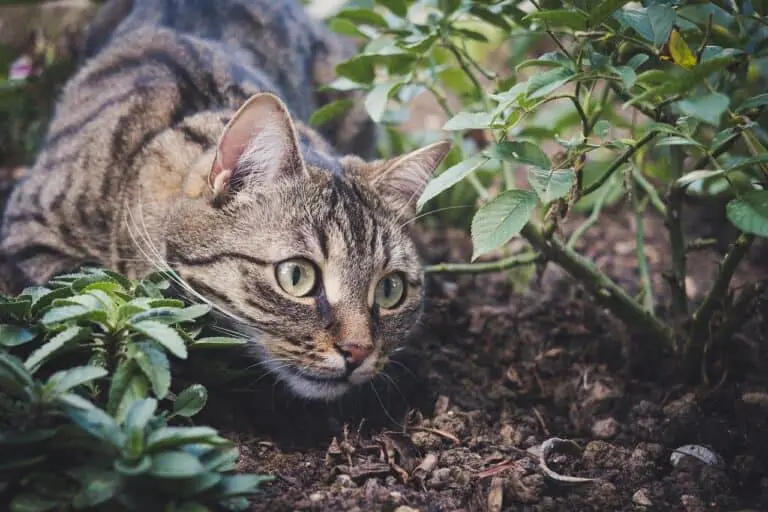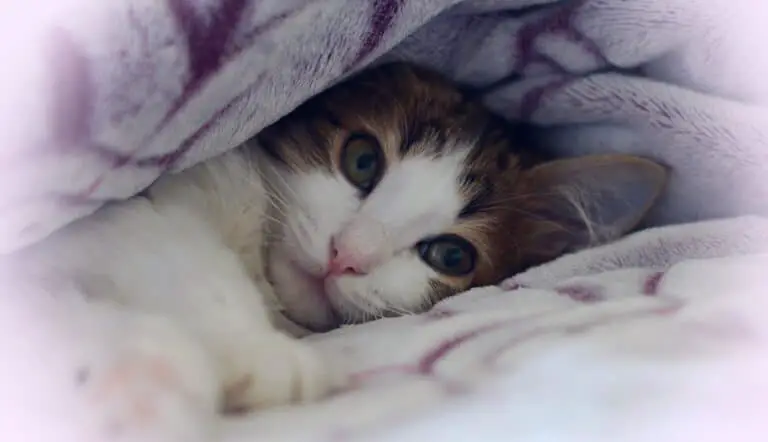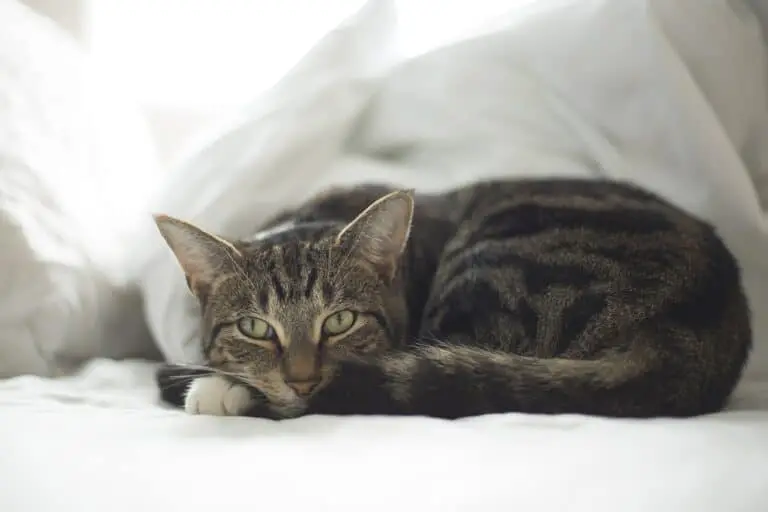WHY ARE STRAY CATS SO FRIENDLY? 3 INTERESTING FACTS
Why are stray cats so friendly? Stray cats may appear friendly because they have learned that humans can provide them with food and shelter.
Many stray cats have been abandoned or lost and have had to learn to survive independently. To do so, they may have developed a friendlier demeanor to approach humans for food or help.
Additionally, some cats may be more friendly or outgoing, regardless of their circumstances.
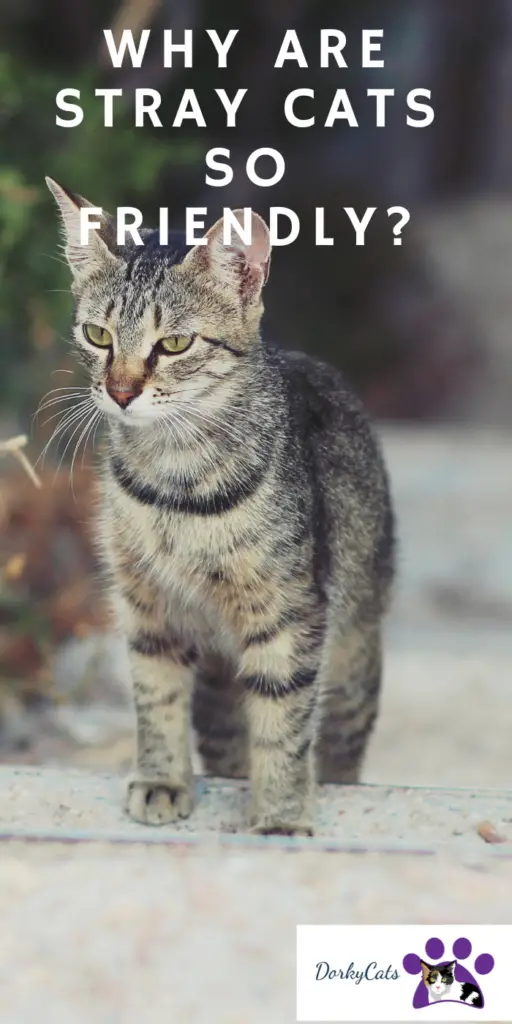
WHY DO STRAY CATS LIKE ME?
Stray cats may like you because they perceive you as a source of food, shelter, or affection. If you have ever given a stray cat food or shelter, they may have learned to associate you with those resources and may seek you out in the future.
Additionally, some cats may be more friendly or outgoing and drawn to people who show them kindness or attention. You may also have a calm or reassuring demeanor that makes the cat feel comfortable and safe around you.
Ultimately, each cat has their own preferences and personality, so why a stray cat likes you may be unique to that cat.
WHY ARE STRAY CATS SO FRIENDLY?
Not all stray cats are friendly, as they are individuals with different personalities, but some stray cats may appear friendly for several reasons:
- Hunger: Stray cats often rely on humans for food and may approach people searching for a meal. Feeding a stray cat may become more comfortable around you and show affection in return.
- Socialization: Some stray cats may have been socialized with humans as kittens and may retain a friendly disposition even after being abandoned or lost.
- Need for attention: Stray cats may seek human attention for companionship or affection.
- Temperament: Like domestic cats, some stray cats are simply more outgoing and affectionate by nature, while others may be more reserved or fearful.
WHAT IS THE SPIRITUAL MEANING OF A STRAY CAT CHOOSING YOU?
From a spiritual perspective, some people believe that when a stray cat chooses you, it may be a sign of good luck, protection, or companionship.
In some cultures, cats are considered sacred animals and are believed to bring positive energy and blessings to those who care for them.
Additionally, cats are known for their intuition and sensitivity, and some people believe that a stray cat may be drawn to you because they sense that you need their calming or healing presence.
Ultimately, the spiritual meaning of a stray cat choosing you may vary depending on your beliefs and personal experiences.
WHAT IS THE DIFFERENCE BETWEEN A STRAY CAT AND A FERAL CAT?
The main difference between a stray cat and a feral cat is their level of socialization and interaction with humans.
A stray cat is a cat that was once owned by someone but has become lost or has been abandoned. Stray cats may be friendly and may approach humans for food or attention. They may also be receptive to being taken in as pets and may be adaptable.
On the other hand, a feral cat is a cat that has not had any socialization or interaction with humans and is typically fearful and avoids contact with people. Feral cats are often born and raised outside and have learned to survive independently.
They typically avoid contact with humans and may become aggressive if cornered or threatened. As a result, feral cats are unsuitable pets. Instead, they are better suited for trap-neuter-return (TNR) programs, which aim to control their population and improve their welfare by sterilizing and vaccinating them.
Overall, the main difference between a stray cat and a feral cat is their level of socialization and interaction with humans. Stray cats are socialized to humans and may be adaptable, while feral cats are not socialized and are better suited for TNR programs.
WHEN A BLACK CAT CHOOSES YOU, WHAT IT MEANS?
From a spiritual or cultural perspective, the meaning of a black cat choosing you may vary depending on your beliefs and the context of the situation.
In some cultures, black cats are considered to be symbols of good luck, prosperity, and protection. For example, in Japan, a black cat is believed to bring good fortune to its owner.
In ancient Egyptian culture, black cats were considered sacred and believed to protect their owners from harm.
However, in some Western cultures, black cats have been associated with bad luck or superstition, particularly if they cross your path. This belief likely arose during the Middle Ages when black cats were sometimes associated with witchcraft and devil worship.
Ultimately, the meaning of a black cat choosing you is likely subjective and dependent on your beliefs and experiences. Some people may view it as a positive sign, while others may see it as a negative one.
WHAT DOES IT MEAN WHEN A STRAY CAT COMES TO YOUR HOUSE?
When a stray cat comes to your house, it can have different meanings depending on the situation.
One possibility is that the cat is searching for food, water, or shelter. Stray cats are often looking for resources to survive, and your home may provide a source of food and safety for them.
Another possibility is that the cat is seeking human attention and companionship. Cats are social creatures and may approach humans for comfort and affection, especially if they have been abandoned or have lost their human companions.
From a spiritual or cultural perspective, some believe a stray cat coming to your house may be a sign of good luck or protection. In some cultures, cats are considered symbols of good fortune and having a cat visit your home may be a positive sign.
WHAT ARE THE SIGNS THAT A STRAY CAT LIKES YOU?
There are several signs that a stray cat may like you, including:
- Approaching you: Stray cats may come or follow you, especially if they seek attention or food.
- Purring: Cats often purr when they are happy and content. So if a stray cat is purring around you, it may be a sign that they feel comfortable and safe in your presence.
- Rubbing against you: Cats have scent glands on their faces and bodies, and they often rub against people and objects to mark their territory. If a stray cat is rubbing against you, it may be a sign that they consider you a friend and want to establish a bond with you.
- Making eye contact: Cats communicate through body language, and making eye contact can be a sign of trust and affection. So if a stray cat makes eye contact with you, it may be a sign that they like and trust you.
- Kneading: Cats knead with their paws as a sign of affection and contentment. If a stray cat kneads near you, it may be a sign that they feel comfortable and happy in your presence.
It’s important to approach stray cats cautiously and avoid overwhelming them with attention. If you want to form a bond with a stray cat, it’s best to do so gradually and on their terms.
Providing food, water, and shelter can also help to establish trust and build a relationship with a stray cat.
CAN YOU GET A DISEASE FROM TOUCHING A STRAY CAT?

There is a small risk of contracting diseases from touching a stray cat, as they may carry certain bacteria, viruses, or parasites.
Some of the diseases that can be transmitted from cats to humans include:
- Cat scratch fever: This bacterial infection can be transmitted through scratches or bites from infected cats.
- Toxoplasmosis: This parasitic infection can be transmitted through contact with cat feces.
- Ringworm: This fungal infection can be transmitted through contact with infected cats or their environment.
- Rabies: This viral infection can be transmitted through bites from infected animals.
Avoid touching them without proper protection is important to reduce the risk of contracting diseases from stray cats.
Wearing gloves and washing your hands thoroughly after handling stray cats can help minimize the infection risk. It’s also a good idea to keep your pets vaccinated and to avoid feeding or handling stray cats if you have a compromised immune system.
If you are concerned about a stray cat’s health or behavior, it’s best to contact a local animal control agency or veterinarian for advice.
DO CATS LIKE BEING STRAY?
Cats are domesticated animals that have evolved to live near humans, so they are not naturally suited to living as strays. While some cats may be able to survive and even thrive as strays, most are at risk of disease, injury, starvation, and other dangers.
Cats kept as pets in loving homes generally have a longer and healthier lifespan than stray cats. They also have access to regular food, water, shelter, and veterinary care, which can improve their quality of life.
It’s important to remember that cats don’t choose to stray; they often end up in that situation due to abandonment, neglect, or other circumstances beyond their control.
If you encounter a stray cat, it’s essential to approach them cautiously and try to help them if possible by providing food and water, contacting a local animal shelter or rescue organization, or seeking veterinary care if they are injured or sick.
WHAT DISEASES DO STRAY CATS CARRY?
Stray cats may carry a variety of diseases that can be transmitted to humans or other animals. Some of the illnesses that stray cats can carry include:
- Cat scratch fever is a bacterial infection transmitted through scratches or bites from infected cats.
- Toxoplasmosis is a parasitic infection transmitted through contact with cat feces.
- Rabies – a viral infection that can be transmitted through bites from infected animals.
- Feline leukemia virus (FeLV) – is a viral infection that weakens the immune system and can lead to other infections and diseases.
- Feline immunodeficiency virus (FIV) – is a viral infection that weakens the immune system and can lead to other infections and diseases.
- Ringworm – a fungal infection that can be transmitted through contact with infected cats or their environment.
It’s also a good idea to keep your pets vaccinated and to avoid feeding or handling stray cats if you have a compromised immune system.
FREQUENTLY ASKED QUESTIONS
Are stray cats dangerous?
It’s important to remember that stray cats are typically afraid of humans and will try to avoid contact whenever possible. However, they may scratch or bite in self-defense if they feel threatened or cornered. Additionally, some stray cats may carry diseases such as rabies, which can be transmitted to humans through bites or scratches.
To minimize the risk of injury or disease transmission, avoiding approaching stray cats or attempting to handle them without proper training and equipment is best. If you encounter a stray cat that appears sick or injured, it’s best to contact your local animal control agency or a rescue organization for assistance.
Do stray cats recognize you?
However, this recognition is typically based on familiarity with a person’s scent, sound, and behavior rather than visual cues like facial recognition.
It’s important to note that stray cats are often skittish and may hesitate to approach humans they don’t know or trust. Building a relationship with a stray cat can take time and patience, and it’s essential to let the cat set the pace of the interaction.
If you’re interested in befriending a stray cat, approaching the animal slowly and quietly is best to avoid sudden movements or loud noises. Instead, offer the cat food or treats and let it come to you on its terms. With time and consistent positive interactions, the cat may become more comfortable around you and eventually recognize you as a friendly presence.
Should I wash my hands after petting a stray cat?
Washing your hands with soap and warm water for at least 20 seconds can help remove any bacteria or other germs that may be present. It’s also important to avoid touching your face or mouth after petting a stray cat, as this can increase the risk of infection.
If you don’t have access to soap and water, use an alcohol-based hand sanitizer temporarily until you can wash your hands properly. However, hand sanitizer may be less effective than soap and water in removing germs.

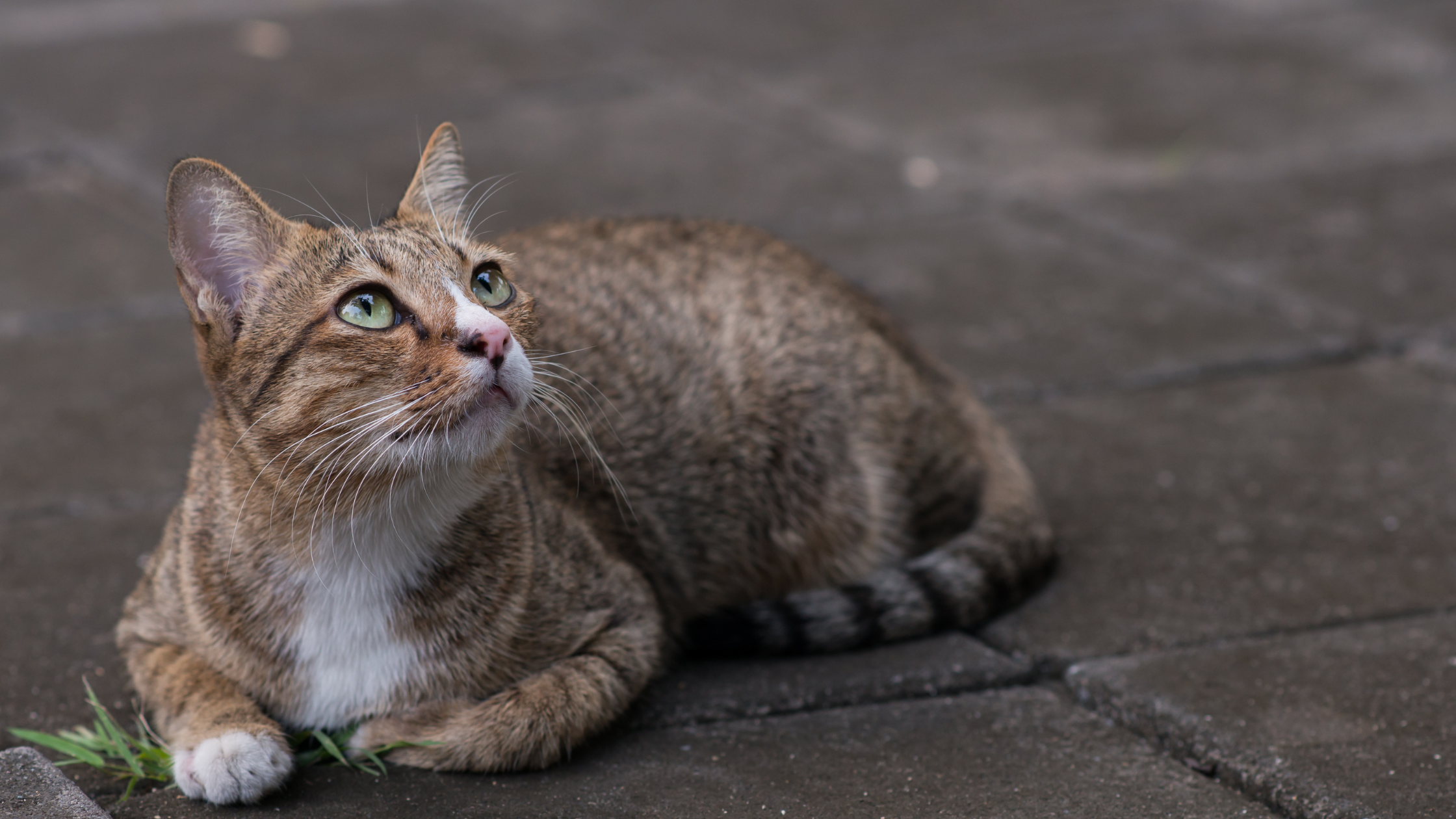
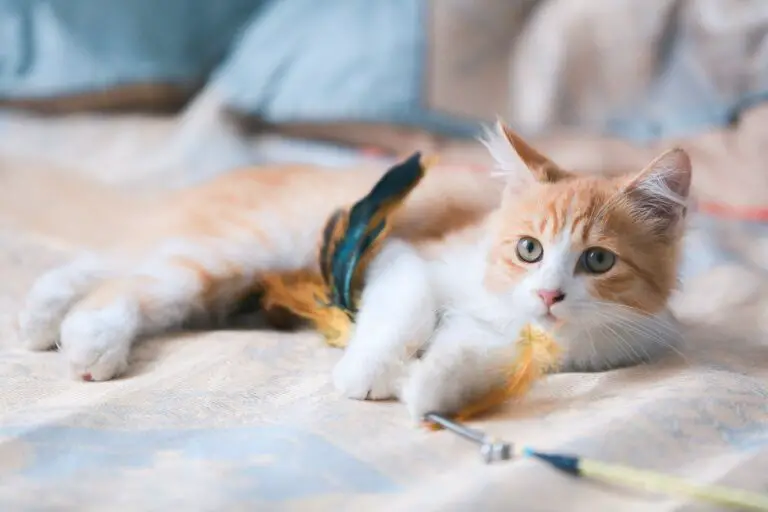

![19+ CAT POSITIONS MEANING [WHILE SLEEPING OR AWAKE]](https://dorkycats.com/wp-content/uploads/2023/02/Dorkycats-Site-7-768x432.png)
